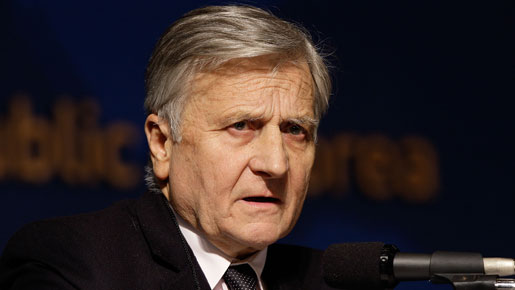
ECB President Jean-Claude Trichet dismissed warnings that drastic and
simultaneous spending cuts planned by eurozone governments could send
the 16-country bloc back into recession.
US policymakers have
called for continued stimulus to keep momentum in the global recovery,
while many economists and academics have raised fears that austerity
measures on the cards in Athens and a clutch of other European capitals
could snuff out the eurozone’s nascent recovery.
“We are totally
against the view that reducing public expenditures will hinder economic
growth,” Trichet said at an ECB watchers conference organised by the
Goethe University Frankfurt’s Centre for Financial Studies.
“Consolidation measures will help turn the current upturn into sustained
growth.”
The ECB took a cautiously confident view of the
eurozone’s recovery after it held the bloc’s interest rates at a record
low one percent.
Trichet said it was too soon to sound the
all-clear over the crisis, but backed eagerly awaited bank stress tests –
currently being carried out on a sizeable chunk of Europe’s financial
sector – to help the recovery process.
“These tests will
increase transparency and enhance investors’ confidence in Europe’s
banking sector,” he said.
It remains vital for governments to
get their finances back in order, he said.
“Just like consumers
and countries, governments cannot live beyond their means forever.
Fiscal authorities need to look beyond the current cyclical upturn.
There is no alternative to that.”
In a copy of Trichet’s speech
released by the ECB, he also backed harsh punishments for governments
that flout Europe’s deficit limits.
“In the most severe cases of
persistent non-compliance (countries not complying with stability pact
rules), a limitation or suspension of voting rights should be
considered.
“We are now at a stage in which we have to finalise
new rules and regulations that will help to make our economies more
resilient… It is a very important phase and it requires our full
attention,” he added.

